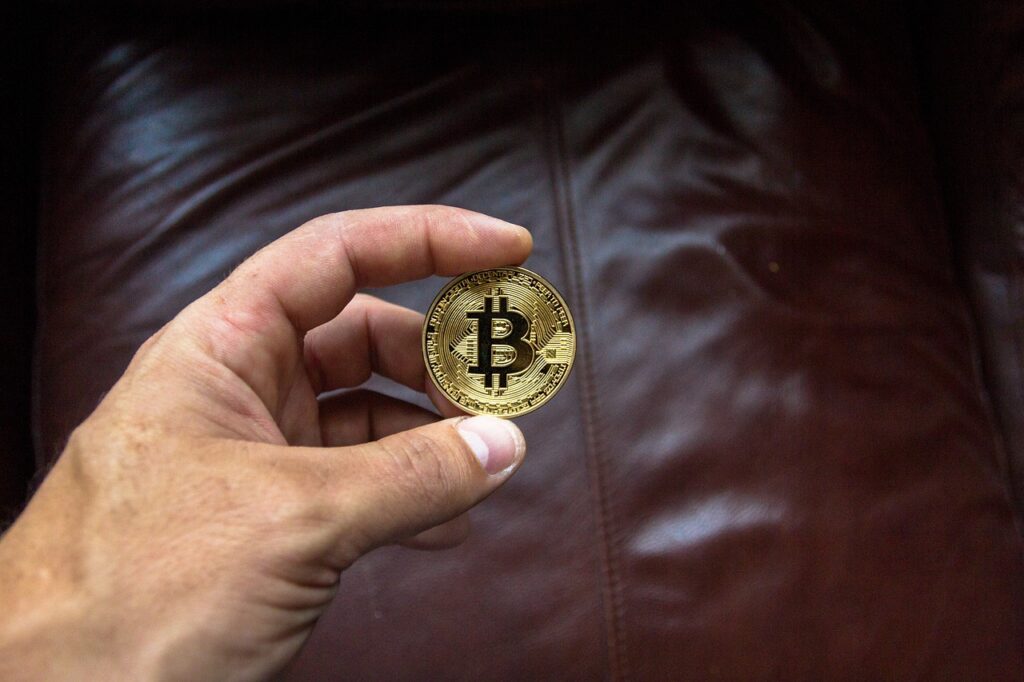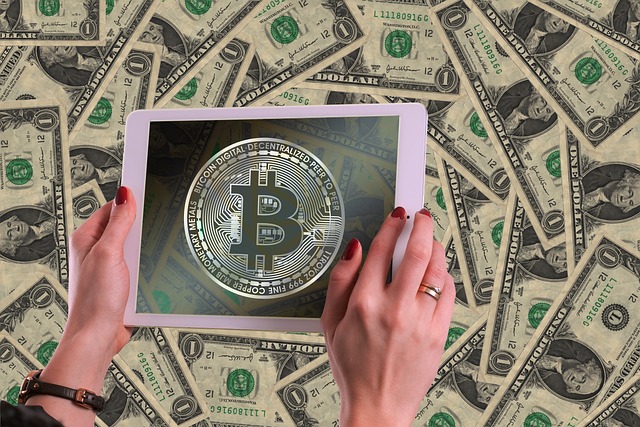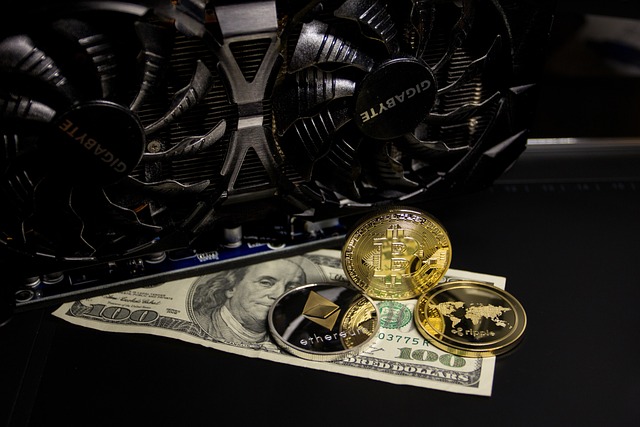The Stock Market and DeFi: A Changing Investment Landscape
The Stock Market and DeFi: A Changing Investment Landscape

The Rise of Decentralized Finance
Decentralized Finance, or DeFi, has been making waves in the world of investment and finance. With the advent of blockchain technology, DeFi has gained traction as an alternative to traditional financial systems. Unlike centralized institutions, which often control and regulate financial transactions, DeFi aims to create a more inclusive and accessible financial ecosystem. It operates on a decentralized network of smart contracts, allowing users to engage in various financial activities without the need for intermediaries.
One of the key components of DeFi is its ability to provide financial services to individuals who may not have access to traditional banking systems. This inclusivity has opened up new opportunities for people all around the world, particularly in regions with limited financial infrastructure. Through DeFi protocols, users can access lending and borrowing services, trade assets, and even participate in decentralized exchanges. With the rise of DeFi, individuals have greater control over their financial assets, enabling them to make autonomous decisions and participate in a previously exclusive market.
• DeFi operates on a decentralized network of smart contracts, eliminating the need for intermediaries
• It provides financial services to individuals who may not have access to traditional banking systems
• Users can access lending and borrowing services, trade assets, and participate in decentralized exchanges
• DeFi offers greater control over financial assets, allowing for autonomous decision-making
• It has opened up new opportunities in regions with limited financial infrastructure
Understanding the Stock Market
An integral part of the global financial system, the stock market is a fascinating arena where investors buy and sell shares of publicly-traded companies. It serves as a platform for companies to raise capital, while offering individuals the opportunity to participate in the ownership and growth of these businesses. Understanding the stock market requires grasping the basic concepts of stocks, such as the idea of ownership and the potential for financial returns.
In simple terms, when you invest in the stock market, you are essentially buying a small piece of a company. This ownership, represented by shares or stocks, entitles you to certain rights, such as voting on company matters and receiving dividends if the company decides to distribute profits to its shareholders. The value of these shares fluctuates based on various factors, including the company’s performance, market conditions, and investor sentiment. As a result, stock market investing can offer the potential for substantial gains, but it also comes with inherent risks that require careful consideration and research before diving in.
Exploring the Basics of DeFi
Decentralized Finance (DeFi) has been gaining significant attention in recent times. It refers to the ecosystem of financial applications built on blockchain technology. Unlike traditional financial systems that rely on intermediaries such as banks, DeFi operates in a decentralized manner, eliminating the need for intermediaries. This allows users to have more control over their financial transactions and assets.
One of the key features of DeFi is its accessibility. Anyone with an internet connection can participate in DeFi platforms, regardless of their location or socio-economic status. This opens up opportunities for individuals who may not have access to traditional financial services. Additionally, DeFi offers various financial services, including lending, borrowing, trading, and earning interest on cryptocurrencies. These services are available 24/7, providing users with greater flexibility and convenience.
However, it’s important to note that while DeFi presents exciting possibilities, it also comes with risks. The decentralized nature of DeFi means that there is no central authority overseeing the operations. As a result, the potential for scams and security vulnerabilities exists. Smart contract bugs and hacks have caused significant losses in the past, highlighting the need for careful evaluation and diligence when participating in DeFi. It is crucial for users to conduct thorough research, understand the risks involved, and take appropriate measures to secure their assets before engaging in any DeFi activities.
Traditional Investment Strategies vs. DeFi
Traditional investment strategies and decentralized finance (DeFi) represent two distinct approaches to investing.
While traditional investment strategies rely heavily on centralized institutions such as banks and brokerage firms, DeFi offers investors the opportunity to bypass intermediaries and directly engage with the market using blockchain technology.
Traditional investment strategies usually involve investing in stocks, bonds, mutual funds, or real estate through established financial channels. These strategies often require a substantial amount of capital and may be subject to various regulations and fees. However, they offer the benefit of a well-established framework and are typically considered less volatile compared to DeFi.
On the other hand, DeFi allows investors to participate in an open, global financial system without the need for intermediaries. Through decentralized platforms, individuals can lend, borrow, trade, and invest in digital assets securely and transparently. DeFi provides greater accessibility, as anyone with an internet connection can participate, regardless of their location or financial status. Moreover, it offers the potential for higher returns compared to traditional investment strategies, as it operates in a more dynamic and rapidly evolving market. However, it is important to note that DeFi carries its own set of risks, including smart contract vulnerabilities and market volatility, which can result in potential financial losses.
The Advantages and Risks of Investing in the Stock Market
Investing in the stock market offers a range of advantages that have made it one of the most popular investment options. Firstly, it provides individuals with the opportunity to grow their wealth over time. By investing in stocks, investors have the potential to generate significant returns that can outpace inflation and increase their purchasing power. Additionally, the stock market offers a wide variety of investment options, allowing individuals to diversify their portfolios and spread their risk across different sectors and companies.
However, alongside these advantages, there are also risks associated with investing in the stock market. One major risk is market volatility. Stock prices can fluctuate dramatically, and sudden changes in market conditions can result in substantial losses for investors. It is important for individuals to be prepared for these fluctuations and be patient with their investments. Moreover, investing in the stock market requires knowledge and research. Making informed decisions on which stocks to buy and sell is crucial, as investing in the wrong companies can lead to financial losses.

How DeFi is Revolutionizing the Investment Landscape
DeFi, or decentralized finance, is taking the investment landscape by storm. With its promise of open and accessible financial services, it is revolutionizing the way individuals manage and grow their wealth. Traditional investment methods often require intermediaries, such as banks or brokers, and come with burdensome regulations. However, DeFi operates on blockchain technology, connecting users directly without any intermediaries or regulatory bodies.
One of the key ways in which DeFi is transforming the investment landscape is through the concept of smart contracts. These are self-executing contracts that automatically execute transactions when certain predetermined conditions are met. This means that investors can rely on code rather than intermediaries or manual processes for executing trades, lending and borrowing assets, and earning returns. Smart contracts not only eliminate the need for intermediaries, but also reduce the potential for fraud and enhance transparency. This gives investors greater control over their investments and eliminates the need to trust third parties with their funds. As a result, individuals from all walks of life can now participate in the investment ecosystem, regardless of their financial status or geographical location. The democratization of investing offered by DeFi is truly changing the dynamics of the investment landscape.
The Role of Blockchain in Decentralized Finance
Blockchain technology plays a pivotal role in the world of decentralized finance (DeFi). At its core, blockchain is a decentralized ledger that records and verifies transactions across multiple computers, ensuring transparency, security, and immutability.

By leveraging blockchain, DeFi platforms can offer a wide range of financial services, including lending and borrowing, decentralized exchanges, derivatives trading, and yield farming. These platforms utilize smart contracts, which are self-executing agreements with the terms of the contract directly written into lines of code. Smart contracts ensure the automatic enforcement of agreements, eliminating the need for intermediaries and reducing the associated costs. Blockchain technology provides the foundation for DeFi to flourish, offering transparency, efficiency, and scalability in a decentralized manner. As the adoption of blockchain technology continues to grow, so does the potential for DeFi to revolutionize the traditional financial landscape.
The Potential Impact of DeFi on the Stock Market
Decentralized Finance (DeFi) has gained significant traction in recent years, and its potential impact on the stock market cannot be ignored. DeFi is a system that removes intermediaries and allows users to access financial services directly through blockchain technology. This innovative approach to finance has the potential to disrupt traditional investment practices and reshape the stock market landscape.
One potential impact of DeFi on the stock market is the democratization of investing. Traditional stock markets are often limited to institutional investors or high-net-worth individuals, leaving the average person with limited opportunities to participate. However, DeFi platforms offer a more inclusive environment where anyone with an internet connection can engage in investment activities. With the elimination of intermediaries, individuals can directly invest in stocks, trade securities, or even issue their own tokens, providing them with greater control and accessibility to the stock market. This shift has the potential to level the playing field and empower individuals who were previously excluded from traditional investment avenues.
Challenges and Regulatory Considerations in DeFi
As with any nascent industry, decentralized finance (DeFi) faces certain challenges and regulatory considerations that need to be addressed.

Moreover, the rapid growth of DeFi brings along a range of technical and operational challenges. One notable issue is the scalability problem. As more users flock to DeFi platforms, the strain on the underlying blockchain network increases, resulting in slower transaction times and higher fees. Additionally, security vulnerabilities and hacks pose serious threats to the funds and assets held in DeFi protocols. Addressing these challenges requires not only technological advancements but also the establishment of regulatory standards that can safeguard investors’ interests while promoting innovation in the DeFi space.
The Future of Investing: A Hybrid Approach to the Stock Market and DeFi
Investing has always been a way for individuals to grow their wealth and secure their financial future. Traditionally, the stock market has been the go-to avenue for investors, offering a wide range of opportunities to buy and sell shares of publicly traded companies. However, the emergence of decentralized finance (DeFi) has introduced a new paradigm in investing.
DeFi leverages blockchain technology to create a decentralized ecosystem that enables individuals to access financial services, such as lending, borrowing, and trading, without intermediaries. Unlike the stock market, which is regulated and operates under established frameworks, DeFi operates on decentralized platforms that are governed by smart contracts. This revolutionary approach to investing opens up a range of possibilities for investors, allowing them to diversify their portfolios beyond traditional assets and explore alternative investment avenues. As a result, a hybrid approach that combines the benefits of the stock market and DeFi has gained traction among investors, offering them the best of both worlds.
What is decentralized finance (DeFi)?
DeFi refers to a system of financial applications, built on blockchain technology, that aim to provide traditional financial services in a decentralized manner. It allows users to access financial services such as lending, borrowing, and trading without the need for intermediaries like banks.
How does the stock market work?
The stock market is a platform where investors can buy and sell shares of publicly traded companies. It allows individuals and institutions to invest in the ownership of companies and potentially earn profits through capital appreciation and dividends.
What is the difference between traditional investment strategies and DeFi?
Traditional investment strategies typically involve investing in stocks, bonds, or other assets through established financial institutions like banks and brokerage firms. On the other hand, DeFi enables individuals to invest in digital assets using decentralized platforms, eliminating the need for intermediaries.
What are the advantages of investing in the stock market?
Investing in the stock market allows individuals to participate in the growth of companies and potentially earn significant returns. It provides diversification opportunities and the ability to invest in various industries and sectors.
How is DeFi revolutionizing the investment landscape?
DeFi is revolutionizing the investment landscape by offering greater accessibility, transparency, and efficiency. It allows anyone with an internet connection to participate in financial activities traditionally limited to a select few. Additionally, DeFi eliminates the need for intermediaries, reducing costs and increasing the speed of transactions.
What is the role of blockchain in decentralized finance?
Blockchain technology plays a fundamental role in DeFi by providing a secure and transparent ledger for recording financial transactions. It ensures the immutability of data and allows for the creation of decentralized applications that can execute financial functions without relying on a central authority.
How might DeFi impact the stock market?
DeFi has the potential to disrupt the stock market by providing alternative methods of investing and accessing capital. It may introduce new investment opportunities and change the way companies raise funds, potentially challenging the traditional stock market.
What challenges and regulatory considerations are there in DeFi?
DeFi faces challenges related to security, scalability, and regulatory compliance. As the industry grows, regulators are likely to impose stricter regulations to protect users and prevent fraudulent activities.
What is the future of investing in relation to the stock market and DeFi?
The future of investing is likely to involve a hybrid approach that combines the traditional stock market with DeFi. Investors may benefit from the advantages of both systems, leveraging the transparency and accessibility of DeFi while still participating in the growth of established companies through the stock market.
Todays Featured Product:
Buy, exchange and grow your crypto securely with a Ledger hardware wallet, combined with the Ledger Live app. It’s never been easier to keep your crypto safe and accessible. Buy direct from Ledger.com and get todays Special Offers Here.




